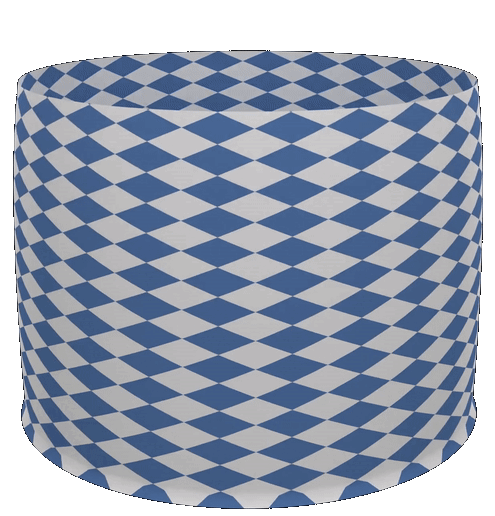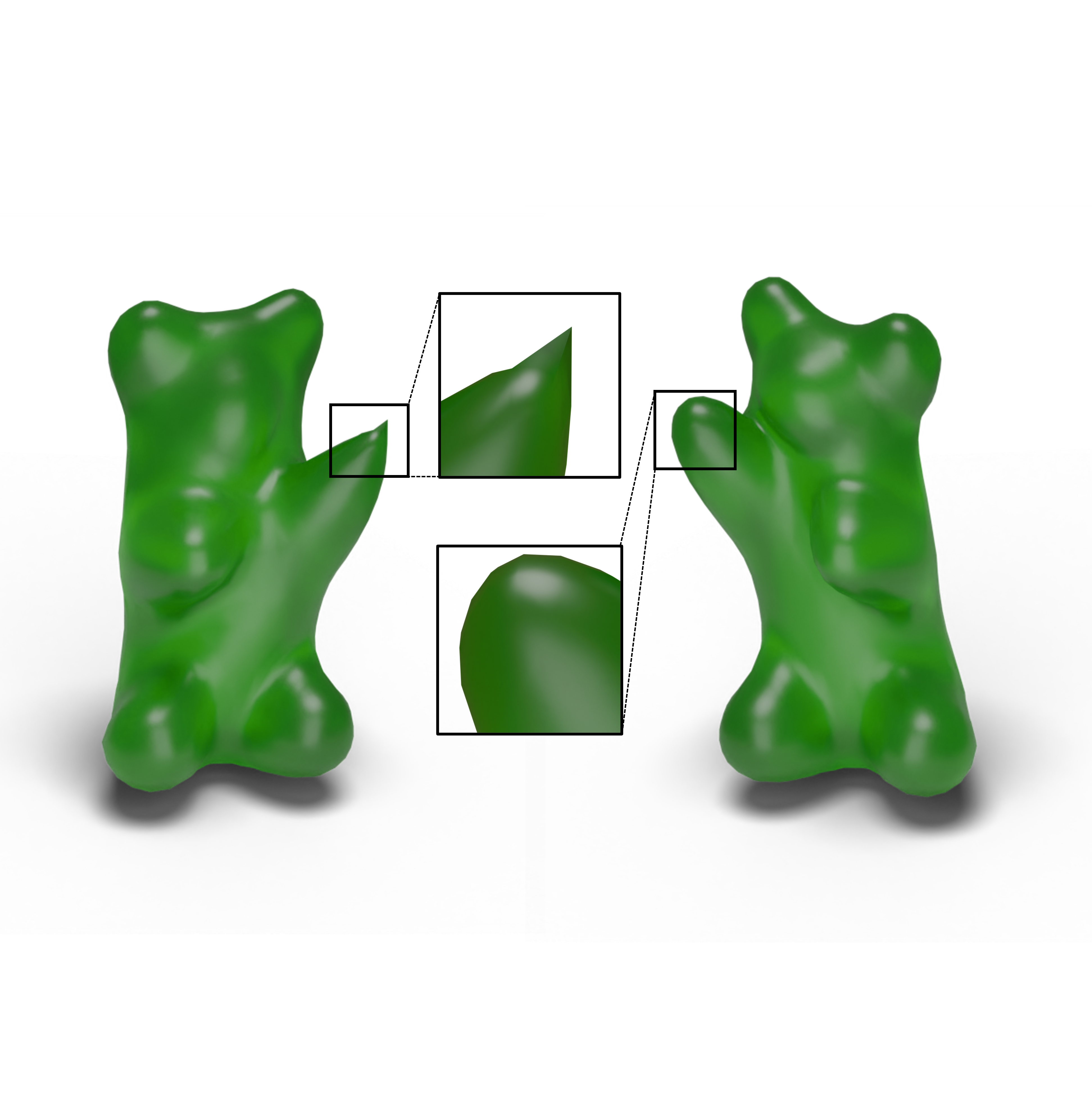Annika Oehri

Hi! My name is Annika and I am a first year PhD student at the interactive geometry lab IGL under the supervision of Prof. Dr. Olga Sorkine-Hornung. I am working on geometry processing tasks, currently particulary focused on tackling fabrication problems.
Publications
Higher Order Continuity for Smooth As-Rigid-As-Possible Shape Modeling
Abstract: We propose a modification of the As-Rigid-As-Possible (ARAP) mesh deformation energy with higher order smoothness, which overcomes a prominent limitation of the original ARAP formulation: spikes and lack of continuity at the manipulation handles. Our method avoids spikes even when using single-point positional constraints. Since no explicit rotations have to be specified, the user interaction can be realized through a simple click-and-drag interface, where points on the mesh can be selected and moved around while the rest of the mesh surface automatically deforms accordingly. Our method preserves the benefits of ARAP deformations: it is easy to implement and thus useful for practical applications, while its efficiency makes it usable in real-time, interactive scenarios on detailed models.
Chebyshev Parameterization for Woven Fabric Modeling
Abstract: Distortion-minimizing surface parameterization is an essential step for computing 2D pieces necessary to fabricate a target 3D shape from flat material. Garment design and textile fabrication are a prominent application example. Common distortion measures quantify length, angle or area preservation in an isotropic manner, so that when applied to woven textile fabrication, they implicitly assume fabric behaves like paper, which is inextensible in all directions and does not permit shearing. However, woven fabric differs significantly from paper: it exhibits anisotropy along the yarn directions and allows for some degree of shearing. We propose a novel distortion energy based on Chebyshev nets that anisotropically penalizes shearing and stretching. Our energy formulation can be used as an optimization objective for surface parameterization and is simple to minimize via a local-global algorithm. We demonstrate its advantages in modeling nets or woven fabric behavior over the commonly used isotropic distortion energies.

Authors: Annika Oehri*, Aviv Segall*, Jing Ren, Olga Sorkine-Hornung
Venue: SIGGRAPH Asia 2024
Project Page: Link
